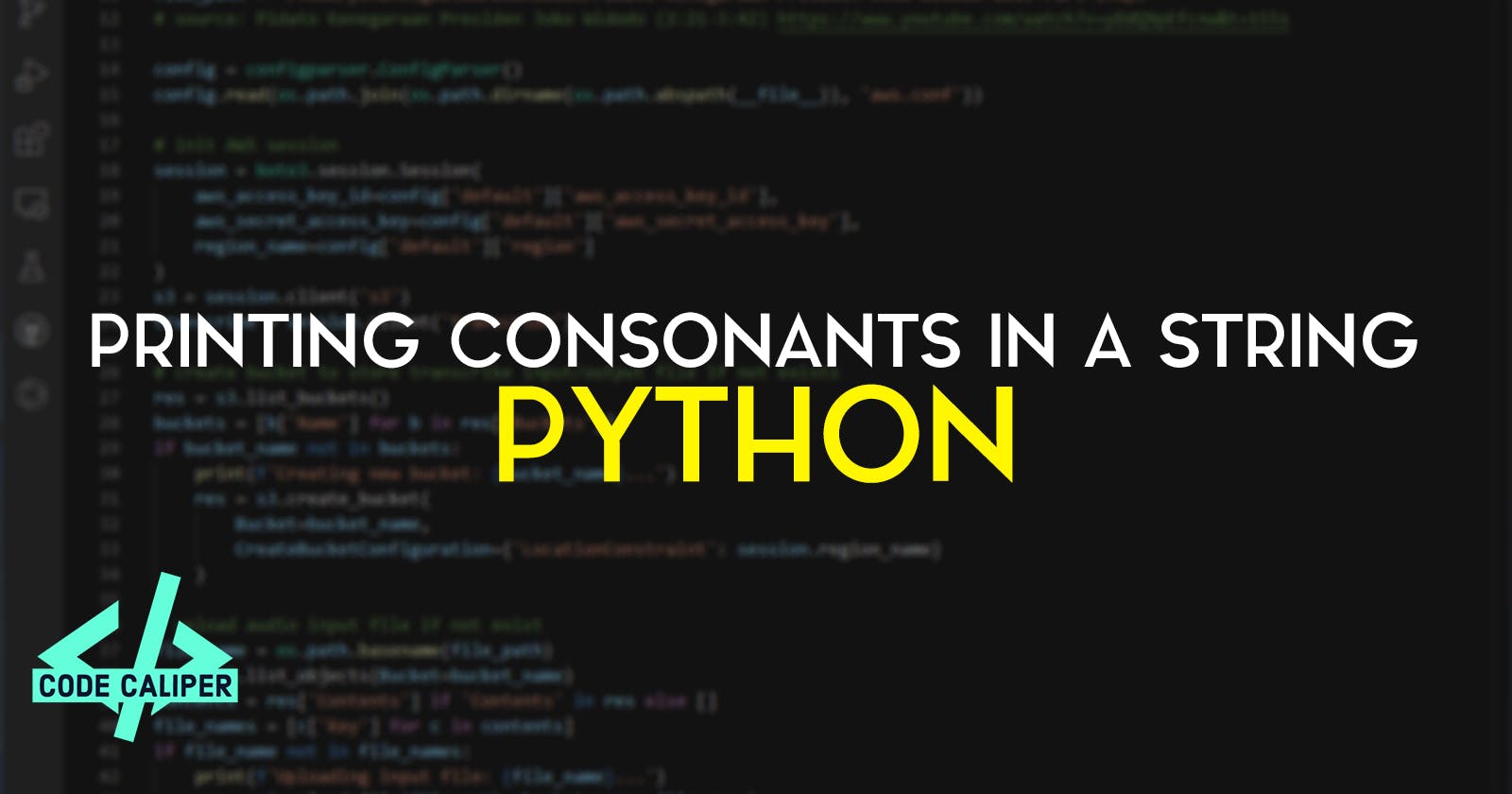Table of contents
No headings in the article.
Have you ever needed to extract all the consonants from a string in Python? It's a relatively simple task that can be accomplished with just a few lines of code.
First, we start by defining the string we want to work with.
s = "Hello World"
Next, we use a for loop to iterate through each character in the string. For each character, we use the isalpha() method to check if it is an alphabetical character. If it is, we proceed to the next step, which is checking if the character is a consonant.
for char in s:
if char.isalpha():
To check if a character is a consonant, we create a tuple containing all the lowercase vowels and use the in operator to check if the lowercase version of the character is in the tuple. If it is not, then we know that the character is a consonant and we print it.
if char.lower() not in ('a','e','i','o','u'):
print(char)
And that's it! With just a few lines of code, we can easily extract all the consonants from a string in Python.
I hope this helps clarify the logic and approach for printing consonants in a string with Python.

